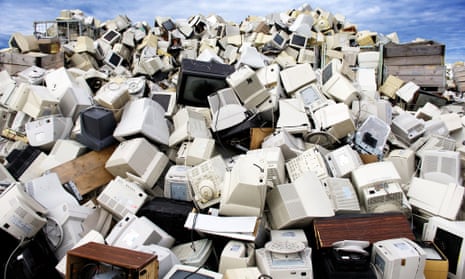More than 200,000 jobs could be created as the economy shifts to reusing materials traditionally discarded by businesses and households, according to a study by a leading green charity.
Green Alliance said the jobs would be created by a new breed of companies that embrace recycling and servicing goods to prolong their lifespan.
The move could stimulate jobs in areas of high unemployment that specialise in services exported to the rest of the country, the report argued. Firms spearheading ways to share services, such as car clubs, could also spur a growth in low and semi-skilled jobs.
Green Alliance director Matthew Spencer said parts of the economy were recycling in a way that dispensed with the traditional linear process of making goods, using them and then disposing of them in landfill.
He said examples of circular business models include designing goods that last longer and can be repaired easily. Products can also be designed to allow for their recovery when it is eventually recycled.
“At a time when many are worried about where jobs will come from in future, it is a tantalising prospect to have a sector which offers a wide range of new jobs right across the country, especially in regions with high unemployment,” he said.
“To be able to stimulate these new jobs in remanufacturing and reuse we will need government to play its part in setting higher standards for product and resource recovery.”
The report, Employment and the Circular Economy, details how Britain can develop a more efficient use of resources that unlike other industrial revolutions, requires more labour.
Written with recycling charity Wrap, the report says by 2030 there would be 205,000 extra jobs and a 54,000 drop in unemployment.
Critics of similar reports have argued that tougher regulations governing the re-usability and ease of recycling staple goods will mean they cost more and put them out of reach of poorer households.
But the report argues that while products might cost a little more initially, low cost servicing will allow products to last longer and be cheaper over the longer term.
Vacuum cleaner maker Dyson and toaster firm Dualit are renowned for offering servicing and parts to prolong the life of their products. With improved regulations, more firms will offer cut-price servicing
Economist Stephen Machin, a professor at University College London said: “Creating jobs with decent pay as innovative technologies evolve is a challenge given the UK’s traditional difficulties in generating good jobs for workers with low and intermediate skills.
“This report emphasises the need for this kind of job creation especially given the decline in jobs in the middle tier of the labour market,” he said.
Spencer said negotiations in Brussels to strengthen regulations were in the pipeline, but needed government support.
“The biggest opportunity is in the EU circular economy package which is being renegotiated this year, but the UK will have to become an active champion of higher ambition or we could end up with no new policy drivers for investment,” he said.
